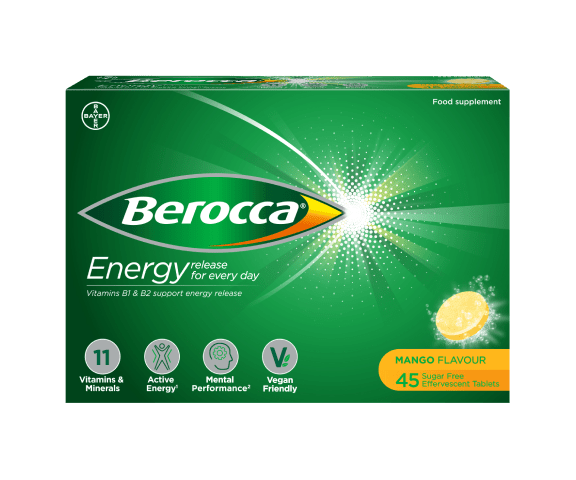Bananas
Magnesium 101: all you need to know
While other nutrients like C, D and E may often steal the limelight, magnesium is an essential mineral that our bodies need to perform a variety of functions.
So if you’re keen to learn more about the whats, whys and hows of this important nutrient, we’ve got you covered.
What is magnesium?
Magnesium is an essential mineral found naturally in several foods. It’s also often available as a dietary supplement and is one of the most abundant minerals within our bodies.
As with many other vitamins and minerals, magnesium plays an important role in keeping us healthy – from supporting muscle function to helping maintain healthy bones and teeth.
It’s also been a hot topic within the world of research over the past few decades, with many scientists looking into how it works within the body.
Which foods are rich in magnesium?
Magnesium is found naturally across a wide variety of foods. In fact, if you’ve ever added spinach to a post-workout smoothie or added nuts to your porridge, you’ll have consumed magnesium in some form already!
Some of the main dietary sources of magnesium include things like:
- Green leafy vegetables such as spinach
- Whole grains such as brown rice and wholemeal bread
- Fruits such as bananas, dried apricots and avocados
- Legumes such as peas and beans
- Nuts such as almonds and cashews
- Seeds such as pumpkin seeds and chia seeds
- Soy products such as soy milk and tofu
- Milk
What are the benefits of magnesium?
Magnesium is essential for various bodily processes and can provide several important benefits. For example, it can help to:
- Reduce tiredness and fatigue
- Turn the food we eat into energy
- Contribute towards normal psychological function
How much magnesium do I need?
Knowing how much magnesium you should be consuming on a daily basis can vary depending on factors like your age, gender and any pre-existing medical conditions you have.
According to government recommendations, men aged between 19 and 64 years old should aim to consume 300mg of magnesium per day, whereas women of the same age should aim for 270mg per day.
The magnesium you take in should also ideally come from eating a balanced diet that contains a variety of the foods listed above. So you should talk to your doctor if you’re looking for tailored advice on how much magnesium you should be taking.
What happens if I take too much magnesium?
Taking in too much magnesium may result in side effects, depending on where the magnesium has come from.
If you take magnesium as a supplement, consuming a high dose (more than 400mg a day) for a short time could result in symptoms like diarrhoea, nausea and abdominal cramping.
There’s also currently not enough evidence to know what the effects of taking high doses of magnesium over a longer period of time might be.
How can I increase my magnesium level?
If you’re looking to add more magnesium to your diet, there are several things you can do.
Change your diet
Magnesium is naturally found in a wide variety of foods, so changing your diet is one of the most effective ways to get more of it into your body.
Rather than choosing processed foods like crisps or, microwave meals, try to follow a healthier, more balanced diet by choosing products that are rich in magnesium, such as leafy green vegetables, nuts and whole grains.
To learn more about consuming a healthy diet and what counts as processed food, speak to your doctor or pharmacist.
Supplement your life with Berocca®
While you should be able to get all the magnesium you need by eating a varied and balanced diet, if you’re finding this difficult, taking a supplement may offer an easy way to boost your daily intake of not just magnesium, but a range of other important vitamins as well.
Berocca® Orange Effervescent Tablets, for example, are packed full of vitamins and minerals, including vitamin B12 to reduce tiredness and fatigue, vitamin C and zinc to support your immune system and vitamins B1, B2 and magnesium to support energy release.
With 100mg of magnesium in each tablet, Berocca® Orange Effervescent Tablets can not only help supplement the magnesium you take in through your diet but, alongside the addition of vitamins C, B6 and B12, help you to feel your best self.
Find
The nearest shop
Get your Berocca from a store nearby.
*Berocca Boost contains caffeine which helps improve alertness and concentration. Do not exceed 400mg of caffeine per day. Not suitable for those pregnant or breastfeeding.






